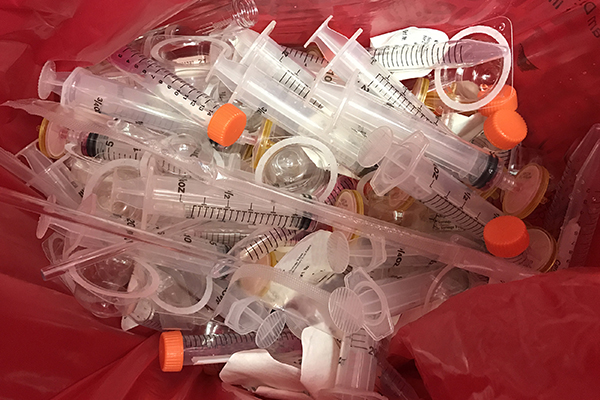The Link between Diet and Lung Health: 10 Things You Must Know


Lung health isn’t talked about enough. Our lungs allow us to breathe and take in the oxygen our bodies need to survive. However, our lungs are complex and delicate and are highly susceptible to damage and disease. Conditions like asthma, chronic obstructive pulmonary disease (COPD), and lung cancer can severely impact quality of life.
Yet many people do not realize that diet plays a major role in determining the health of our lungs. Your diet can either help or harm your lungs in many ways. Your nutrients can directly affect lung tissue, inflammation, and immune response.
Table of Contents
Factors that Harm Lung Health
Before we explore the connection between healthy lungs and diet, it’s important to learn the factors that can affect our health. Because no matter how good a diet you have, if you are continuously exposed to these factors, your lung health will continue to decrease.
From environmental pollutants like smoking, exposure to harmful elements can pose serious risks to our lungs. The health risks posed by these factors can include asthma, COPD, and even lung cancer. One significant and often overlooked risk is asbestos exposure. Asbestos fibers, when inhaled, can become embedded in the lung tissue, leading to diseases like asbestosis, mesothelioma, and lung cancer.
For those who believe they might have been exposed to asbestos, seeking both medical and legal guidance is crucial. Organizations like www.lungcancergroup.com offer awareness and legal assistance to victims of asbestos-related health issues. This legal avenue is essential because many instances of asbestos exposure occurred due to neglect from certain companies, thereby necessitating legal intervention for justice and compensation.
The Diet-Lung Health Connection
A 2023 research shows that adopting healthy dietary patterns like the Mediterranean diet is associated with better lung function and a lower risk of developing lung diseases. Conversely, eating a typical Western diet high in processed foods, salt, sugar, and saturated fats can negatively affect lung health.
Your diet can either help or harm your lungs in many ways. Your nutrients can directly affect lung tissue, inflammation, and immune response. Eating antioxidant and anti-inflammatory foods helps reduce oxidative stress and swelling in the lungs, while adequate protein intake provides the amino acids needed to maintain lung tissue. Some vitamins and minerals even act directly on lung receptors and enzymes involved in breathing.
While it’s clear that nutrition provides a means of lung disease prevention, the question is, where do you begin?
10 Dietary Changes That Can Improve Lung Health
Here are ten things you must know about how your food choices that impact your ability to breathe. These dietary changes can significantly improve the health of your lungs.
1. Eat More Fruits and Vegetables
Fruits and vegetables should form the foundation of any healthy diet, but they are especially important for lung health. Produce contains antioxidants, including vitamins A, C, and E, and phytonutrients like flavonoids and carotenoids. These compounds fight oxidative stress from free radicals, which can damage lung tissue. Fruits and veggies also have natural anti-inflammatory effects. Aim for at least 5 servings per day.
2. Choose High-Antioxidant Foods
Loading up on foods high in antioxidants is one of the best things you can do for your lung health. Antioxidants help counteract oxidative damage from free radicals, protecting delicate lung tissue. Some of the top antioxidant powerhouses are berries, citrus fruits, tomatoes, leafy greens, nuts, and seeds.
Try incorporating these foods into as many meals and snacks as you can. Not only are they nutrient-dense, but their antioxidant content specifically helps strengthen the lungs. Don’t forget about antioxidant-rich herbs and spices, too. Turmeric, in particular, contains the compound curcumin, which is strongly anti-inflammatory. Use turmeric liberally to help calm inflammation in the respiratory system.
3. Eat More Fatty Fish
Fatty fish like salmon, mackerel, sardines, and tuna have high levels of beneficial omega-3 fatty acids. Research shows omega-3s are linked to better lung function and health. They have natural anti-inflammatory properties that help reduce swelling and excess mucus production in the airways – two common problems that interfere with breathing. Try to incorporate fatty fish like salmon or tuna into your diet at least two times per week. Not only is fish tasty, but it delivers those omega-3s your lungs need in abundance.
4. Choose Lean Proteins
Protein is crucial for maintaining lung tissue integrity and performing repairs. However, not all proteins are created equal when it comes to your lungs. Leaner proteins like chicken, turkey, beans, and lentils are best. They supply amino acids without providing excess saturated fats, which provoke inflammation in the delicate lung tissue. Studies show low protein intake is tied to poorer lung function, so eat healthy protein every meal. Beans, lentils, nuts, or poultry are all great options that will nourish your lungs.
5. Cook with Olive Oil
Olive oil is a staple of the Mediterranean diet, which is consistently linked with better lung health outcomes. The monounsaturated fats and antioxidants found in olive oil have natural anti-inflammatory effects on the body. Using olive oil for sautéing, roasting, and dressing foods can help cut back on pro-inflammatory oils like butter or vegetable oil. The antioxidants in olive oil also help reduce oxidative damage over time that can harm the lungs. Make olive oil your go-to cooking oil whenever possible to reap the respiratory benefits.
6. Limit Salt
Eating too much sodium can directly damage lung tissue and worsen respiratory diseases. Salt promotes fluid retention in the lungs, which strains breathing. It also increases inflammation. Limit your sodium intake by avoiding processed foods, adding salt to the table, and using fresh herbs and spices to flavor food instead.
7. Stay Hydrated
Staying well hydrated keeps your lung mucus thin and easy to clear. Thick mucus can clog airways and make breathing more difficult. Drink at least 6 to 8 glasses of fluids daily. Water and herbal tea, broths, and fruit or vegetable juices are best. Avoid sugary sodas and drinks with caffeine, which act as diuretics.
8. Eat More Fiber
A high-fiber diet supports lung health in multiple ways. Soluble fiber forms a gel-like substance that can help reduce lung mucus. Fiber also lowers inflammation and helps regulate immune function. Good sources include fruits, vegetables, whole grains, beans, nuts and seeds.
9. Take a Quality Probiotic
The bacteria in your gut impact systems throughout your body, including your lungs. Taking a daily probiotic supplement can help balance your gut microbiome, reducing inflammation and supporting immune response. Look for a broad-spectrum probiotic with at least 10 billion CFUs from reputable brands.
10. Avoid Processed Meat
Processed meats like bacon, sausage, and deli meats contain nitrites and other preservatives that can damage lung tissue. These foods are linked to worse outcomes in COPD patients. Limit processed meats and opt for leaner, unprocessed protein sources to minimize lung inflammation.
Conclusion
Your diet has a profound influence on the health of your lungs. Eating nutrient-dense, antioxidant, and anti-inflammatory foods gives your respiratory system the necessary compounds to function optimally and fend off disease. At the same time, limiting salt, processed foods, and saturated fats helps avoid negative impacts. Use these 10 diet tips to keep your lungs as healthy as possible through nutrition. Protecting your lung health starts from the food on your plate.



